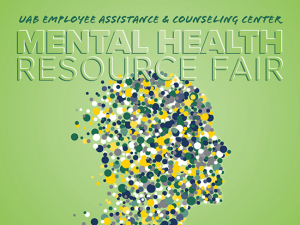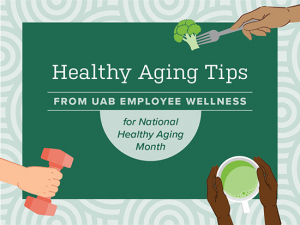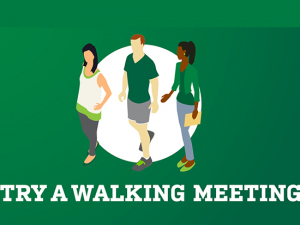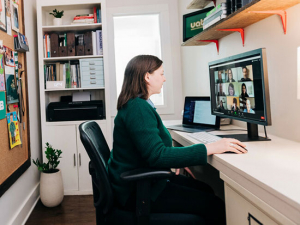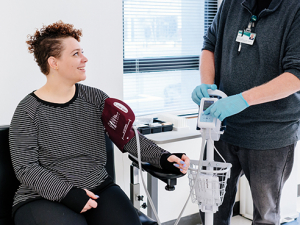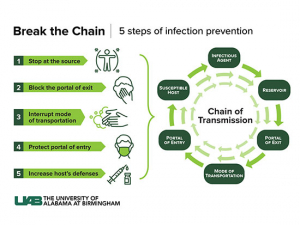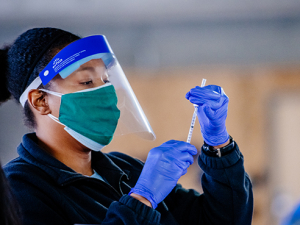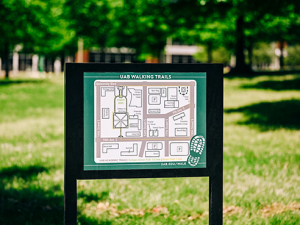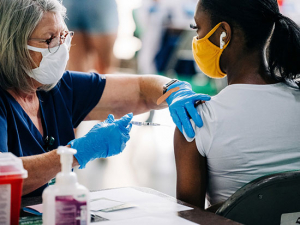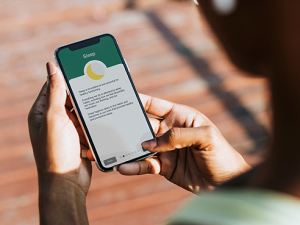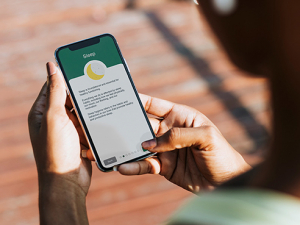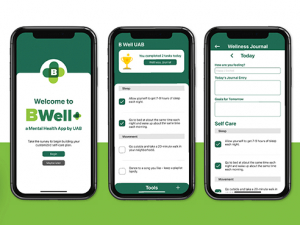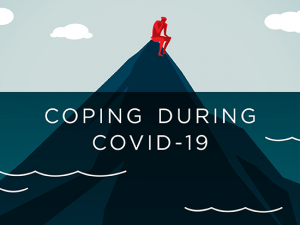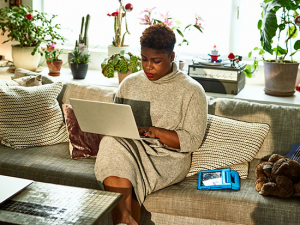 Most of us look up to leaders who can weather the storms of life while pointing to brighter times ahead. Today is the day for you to do likewise, whether you or not you have an official leadership role. The secret: emotional intelligence.
Most of us look up to leaders who can weather the storms of life while pointing to brighter times ahead. Today is the day for you to do likewise, whether you or not you have an official leadership role. The secret: emotional intelligence.
That’s the message from School of Medicine Leadership Development Officer Jean Ann Larson, Ed.D., who joined UAB in 2016 with a mandate to be “a catalyst for positive culture transformation throughout UAB Medicine.”
The biggest factor in creating a positive culture, Larson said, is boosting emotional intelligence — that is, a capacity to recognize and take control of your emotions.
“We all get a little better at this as we mature, but the minute you start to get super-stressed, lose sleep, get sick, hungry or worried, it becomes difficult to harness the emotional intelligence you have. If I’m stressed out I’m more likely to snap at someone, to assume negative things, to tell a story in my head that may be far from the truth.”
If you “can harness your emotions in a productive way, you can be more creative and collaborative,” Larson said. “It helps you perform better and remain productive in stressful situations. We are all going through a stressful situation right now with COVID–19, but we’ll continue to have stressful situations all our lives.”
Begin with you
Developing emotional intelligence is an ongoing skill, Larson said. That means you can work on it a little at a time, starting today, by building self-awareness and self-regulation or self-management. (See her tips on questions to ask yourself and activities to practice below.)
“The most difficult thing you manage in every situation is yourself,” Larson said. “As a leader — and we all have people around us who look to us for leadership — people are looking to us for direction but also for emotional cues. When you see that calmness in a leader, you feel yourself settling down as well.”
Today, the most common emotions you and your co-workers, family and friends are probably experiencing are stress, anxiety and fear. “Emotional intelligence is probably more important now than ever,” Larson said. “It helps us deal with change, uncertainty, ambiguity — and you could argue those are things we all need now.”
 So where to start, especially if you, like millions of Americans, are working from home?
So where to start, especially if you, like millions of Americans, are working from home?
1. Take care of yourself
“The first thing I tell people is to make sure they carve out time for the activities that help them relax,” Larson said. "That is different for different people — it could be cooking or reading or listening to music. I happen to be a runner. Going out and disconnecting is very helpful to me.”
For UAB faculty and staff “who are now on the front lines — our doctors and nurses and other health providers — this is just as important,” Larson said. “Even if they don’t have much time. I tell them, ‘You need to restore yourself quickly and intentionally.’”
2. Set a schedule
“Especially when you are working from home, and I learned this in my own consulting practice, you need that structure,” Larson said. “Get up, get dressed, have that cup of coffee, make the list of things you are going to work on. That is self-management.” It also helps you focus and stay productive.
3. Listen — and share
“One of the things I’ve put in place with my team are very brief, daily check-ins,” Larson said. “I ask: How is it going? What are your concerns? What are you needing?”
 Jean Ann Larson, Ed.D., Leadership Development Officer for the School of Medicine
Jean Ann Larson, Ed.D., Leadership Development Officer for the School of Medicine
Larson also encourages her team to look forward. “Think about difficult times you have been through,” she said. “You got through that and we will get through this. What are the productive things we can be doing in the meantime?”
And she shares what she knows. “Part of our daily virtual huddles include me sharing the information I have with my team,” Larson said. “If I know it and I can share it, I will share it. If we don’t have the information we have a tendency to make up stories, and those are often way worse than reality.”
4. Take advantage of technology — to slow yourself down
“Self-regulation is hard when you are under stress,” Larson said. “But we all need to learn to pause before we react. The good news for me with things like Zoom and other video meeting software is I can’t just blurt things out. That built-in delay helps you pause.”
5. Be patient with yourself and others
“We are all adapting to new tools and processes in a stressful time,” Larson said. “Being very patient with each other, and ourselves as we learn, makes those meetings or projects much more effective.”




